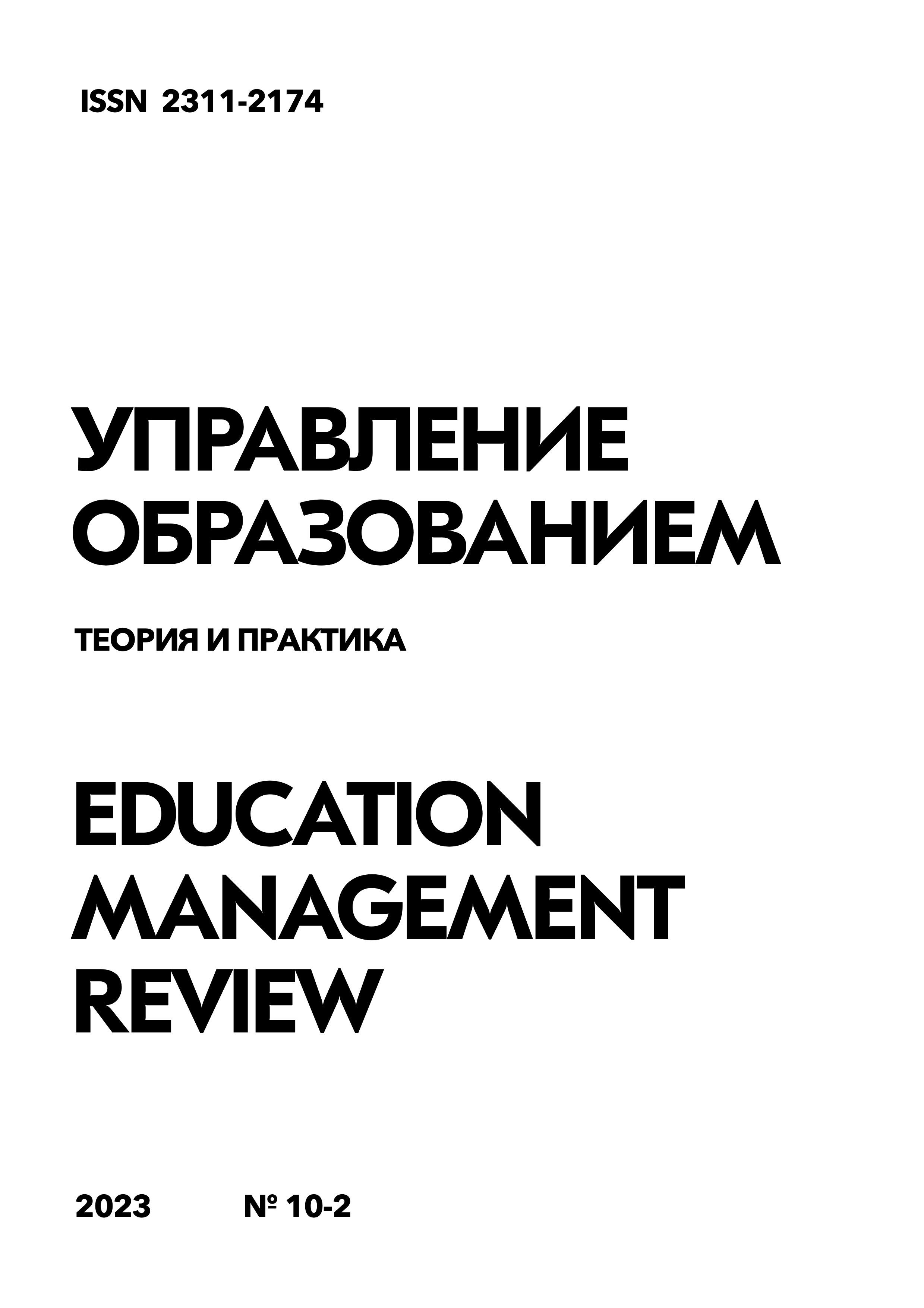Integration of the Internet of Things (IoT) into the pedagogical process of technological universities
DOI:
https://doi.org/10.25726/x2669-1485-8744-aKeywords:
internet of Things, IoT, technological universities, Russian Federation, pedagogical process, integration, information technology, academic efficiency, individualization of education, statistical analysis, regression analysis model, data cross-validationAbstract
In the modern educational context of the Russian Federation, there is a noticeable interest in the integration of information technologies into the pedagogical process. One of the promising directions is the use of the Internet of Things (IoT) to ensure a high degree of individualization and optimization of the educational process. The research focuses on the effectiveness of the integration of IoT technologies into the pedagogical methods of technological universities in Russia, especially in the context of applied disciplines. Statistical analysis of data obtained from 24 technological universities, covering more than 12,000 students and 1,200 teachers, revealed key factors that significantly affect the effectiveness of IoT application in the educational environment. Based on the model of regression analysis and cross-validation of data, correlations were identified between the level of maturity of the technological infrastructure of the university, the qualifications of the teaching staff and the success of IoT integration. In particular, it was found that in universities with a highly efficient IoT infrastructure (the average Internet connection speed is 1 Gbit/s, the availability of modern laboratories with equipment of the latest generations), the satisfaction index of students and teachers increases by 34.7% compared to universities where the infrastructure is less developed. An important aspect is the development of pedagogical techniques that integrate IoT into the learning process. Interaction with IoT sensors and equipment is accompanied by an increase in the rate of active student involvement by 21.3%, and the use of IoT analytics to personalize the educational process leads to an improvement in academic results by 16.5%.
References
Ботнева Ю. С., Потапов А. А. Применение геоинформационных систем в сельском хозяйстве // Вопросы науки и образования. 2018. № 10 (22). С. 152-154.
Васильева Н. И. Использование мобильных приложений в аспекте повышения мотивации обучающихся к занятиям физической культуры и ведению здорового образа жизни // Мир педагогики и психологии. 2019. № 12 (41). С. 59-67.
Великанова Е. С. Применение мобильных приложений для оптимизации занятий физической культурой и спортом // Аллея науки. 2019. Т. 2. № 12 (39). С. 855-858.
Глухов Л. В., Казиев К. В., Ловпаче З. Н., Гудкова С. А. Интеллектуальные сервисы на облачной платформе IACPAAS и онтологии: ключевые принципы и возможности // В сборнике: Татищевские чтения: актуальные проблемы науки и практики. Материалы XVIII Международной научно-практической конференции. В 3-х томах. Тольятти. 2021. С. 220224.
Довгаль В. А., Довгаль Д. В. Интернет Вещей: концепция, приложения и задачи // Вестник Адыгейского государственного университета. Серия 4: естественно-математические и технические науки. 2018. № 1. С. 129-135.
Ежова Ю. М., Кузнецова С. Б., Кузнецов М. С. Подготовка специалистов в области экономики с учетом развития процесса цифровизации // Московский экономический журнал. 2022. № 2. С. 484 – 491.
Зверкова А. Ю., Омельченко Е. А. Отношение студентов вуза к процессам цифровизации профессиональной подготовки // Концепт. 2021. №7. С. 45-61.
Киселев А. А. Экономические и политические вызовы «цифровизации» российского высшего образования: теоретический и практический аспект // Теоретическая экономика. 2021. № 4 (76).
Микелевич Е. Б. Познавательная деятельность студентов в условиях цифровизации образования // Вестник Полесского государственного университета. Серия общественных и гуманитарных наук. 2021. №1.
Тусков А. А., Грошева Е. С., Палаткин И. В., Шорохова О. С. «Индустрия 4.0» в АПК: основные тенденции применения технологий Интернета вещей в сельском хозяйстве // Модели, системы, сети в экономике, технике, природе и обществе. 2018. № 1(25). С. 55-64.
Пак Л. И., Польщикова Ю. А. Фитнес-трекеры в студенческой жизни // Наука и образование: сохраняя прошлое, создаем будущее: сборник статей XXV Международной научно-практической конференции. В 2 ч. Ч. 2. Пенза: Наука и Просвещение. 2019. С. 113-114.
Токсонбаев Р. Н., Абдыкадыров А. А. Цифровизация образования – основополагающий фактор развития будущего // Преемственность в образовании. 2019. № 23 (10). С. 661-664.
Филимонова С. И., Андрющенко Л. Б., Аверясова Ю. О. Инновационное содержание обучения по физической культуре и спорту будущих предпринимателей // Культура физическая и здоровье. 2020. № 3 (75). С. 73-76.
Шутова Т. Н., Андрющенко Л. Б., Столяр К. Э. Деятельностно-ориентированные и цифровые технологии в профессиональной переподготовке инструкторов и тренеров по спорту: монография / М.: ФГБОУ ВО «РЭУ им. Г.В. Плеханова», 2020. 248 с.
Morozova O. I., Semenikhina A. V., Torgachev D. N. Information technologies as the effective instrument of the choice and implementation of hi-tech projects at the enterprises // Informatsionnye sistemy i tekhnologii. 2019, №. 3. Pp. 35-41.




